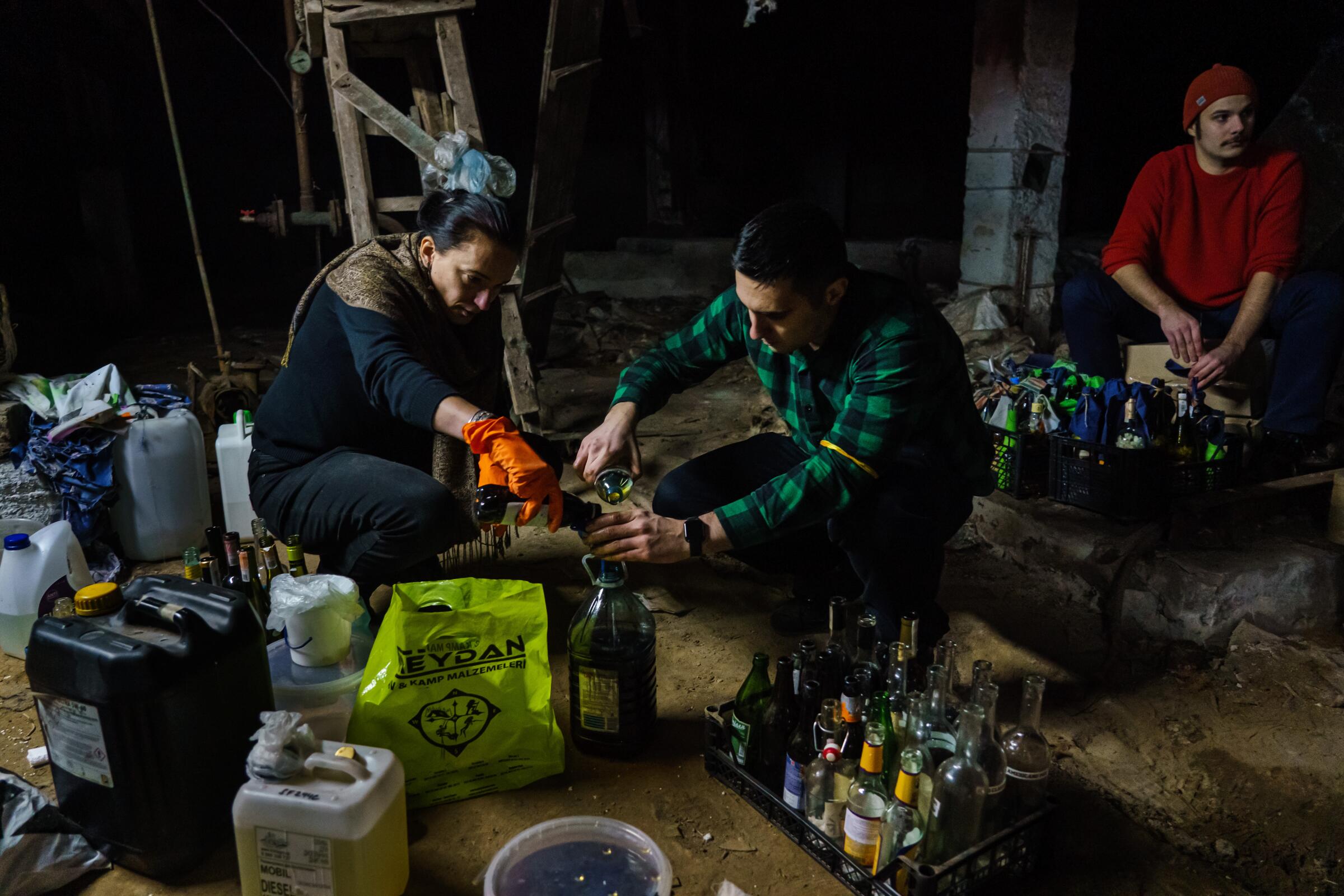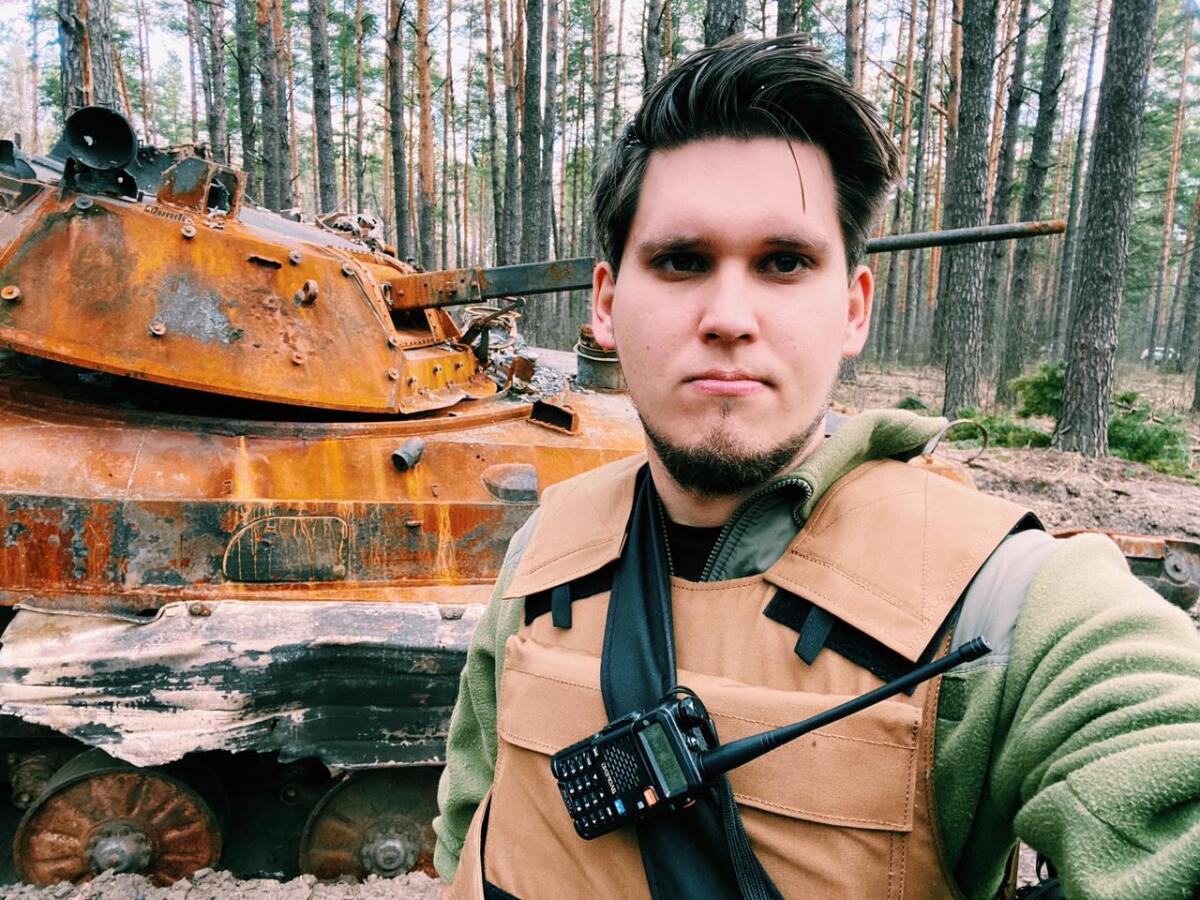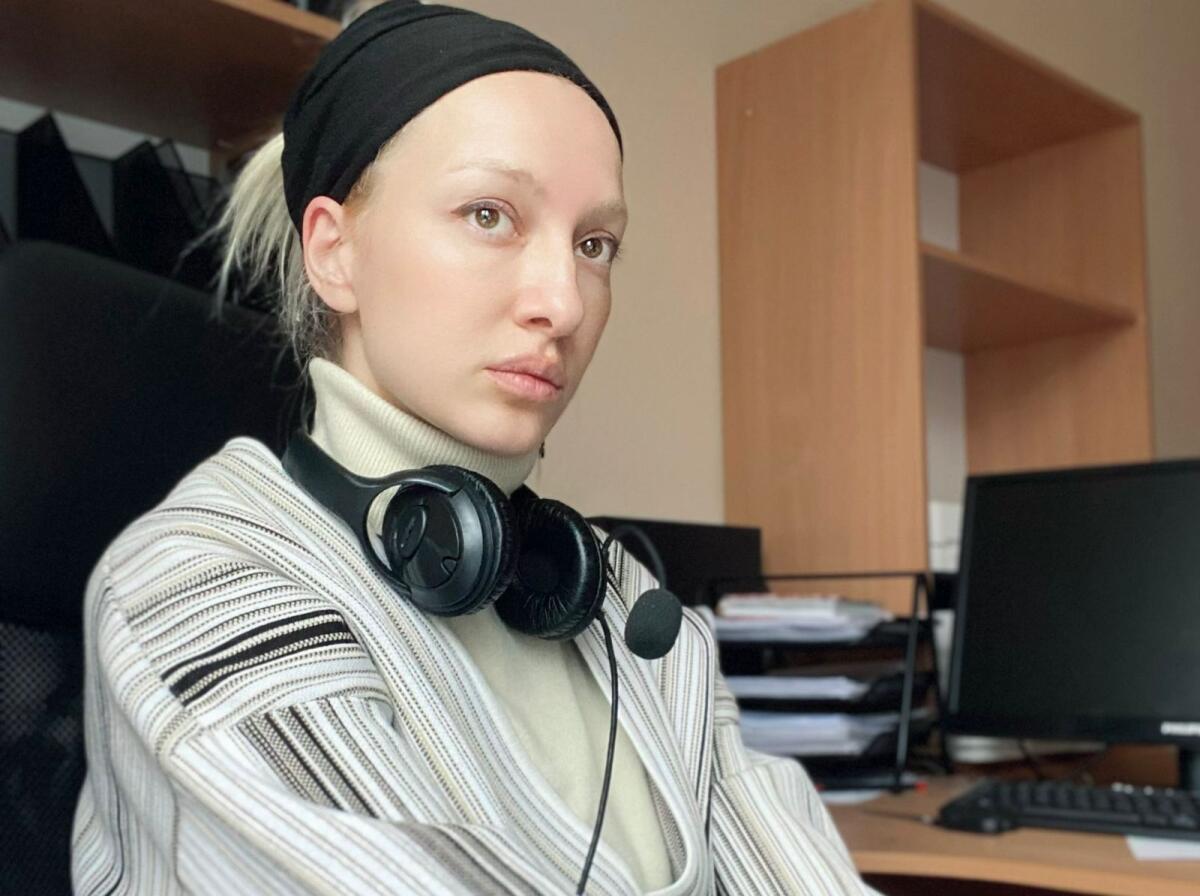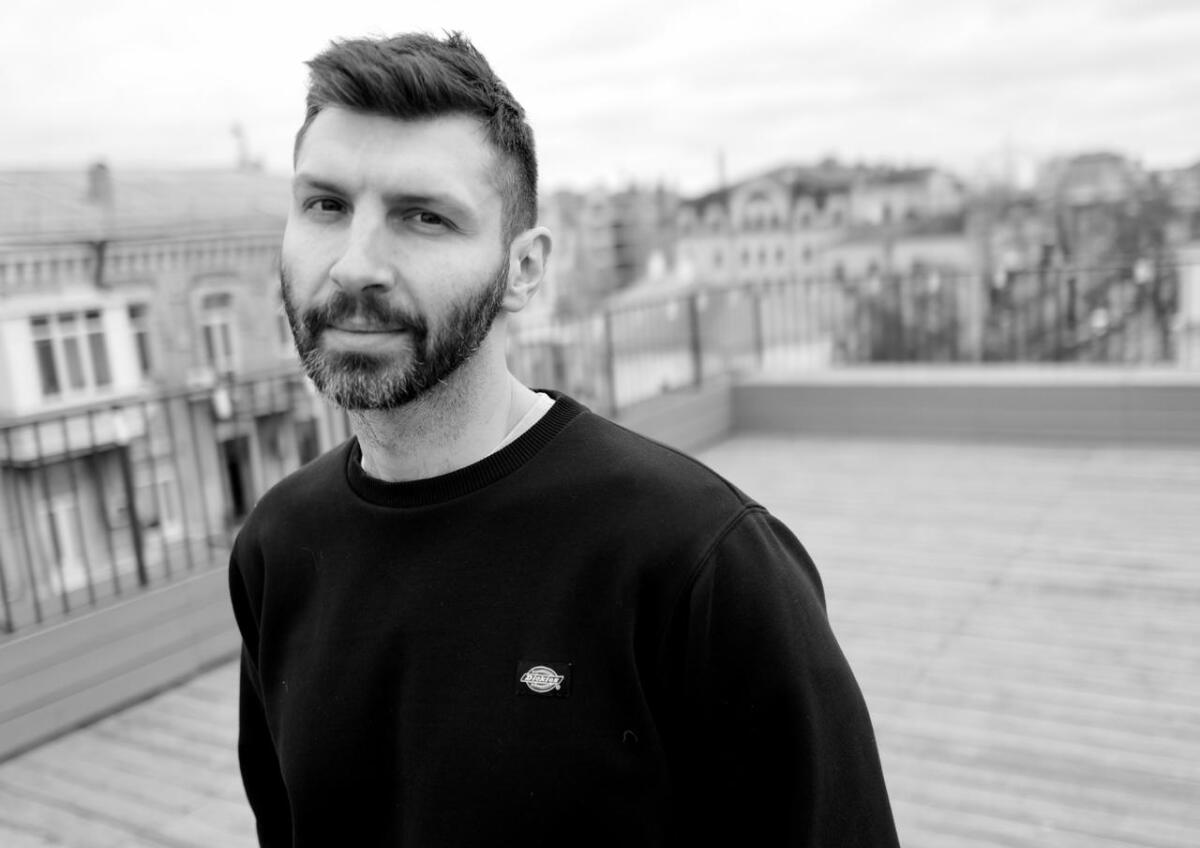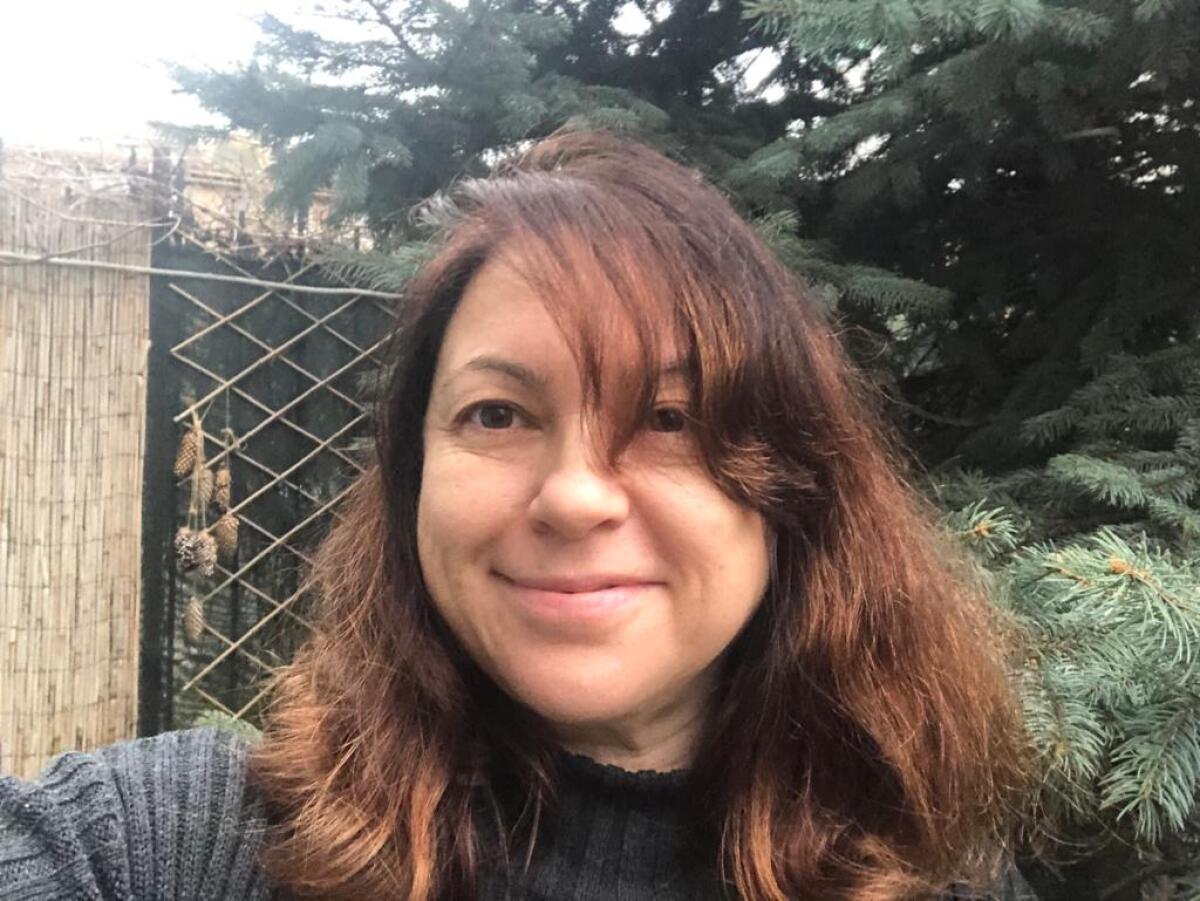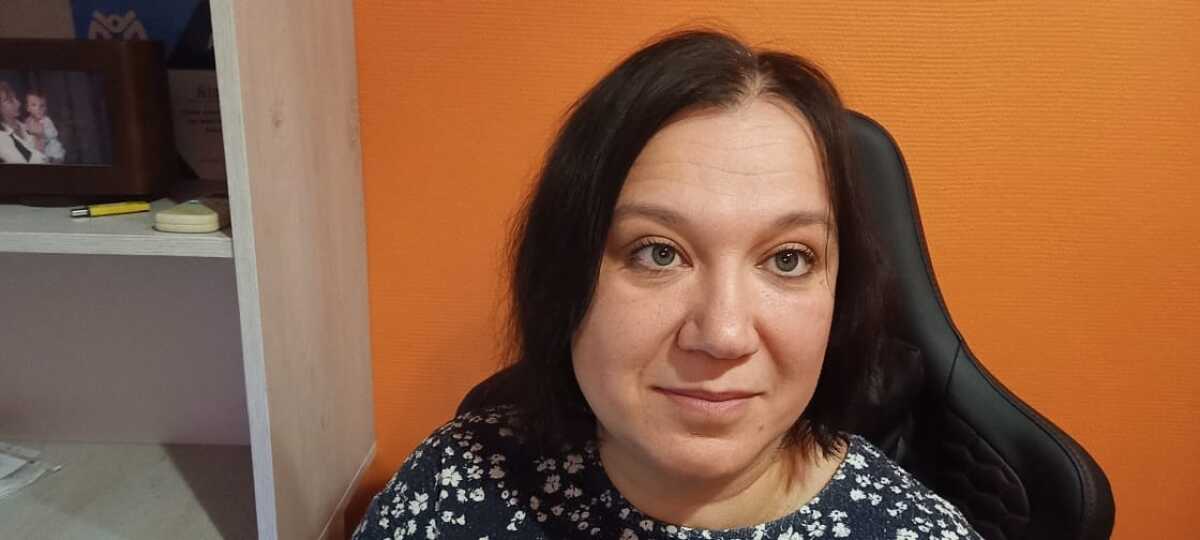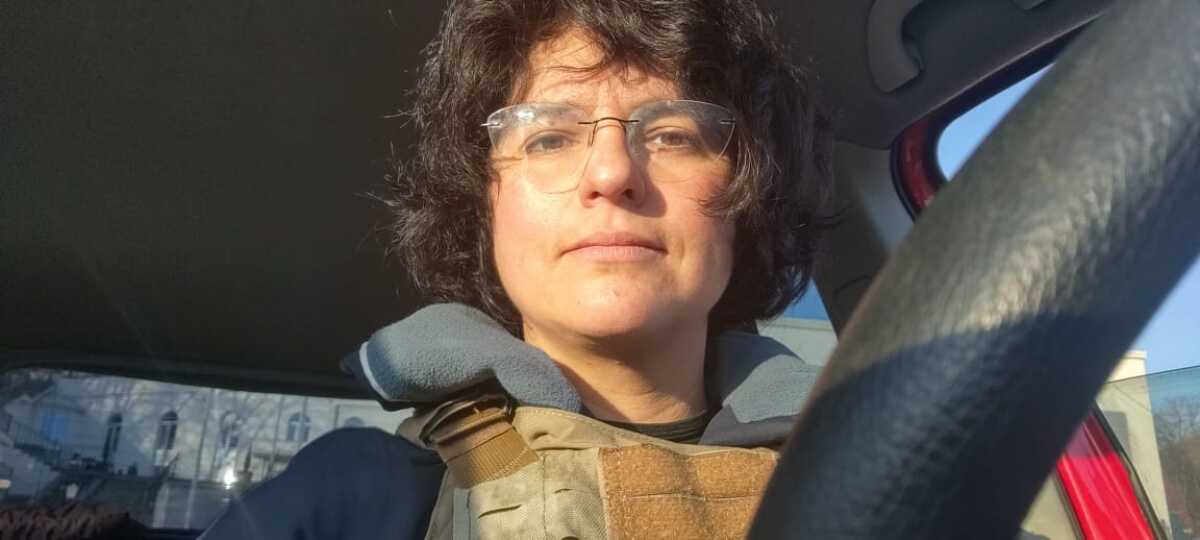When the war started, all my students disappeared immediately. I just couldn’t think about teaching. No way. I felt so empty inside.
I started working as a volunteer three or four days after the war started. I realized that I couldn’t stay at home because I was nervous, I was frustrated, I was crying. I was scared about the future and I realized that the only way to lift myself was to have this feeling of being helpful. In the café where we cook food for people, I feel calm. I never hear the sounds of war and shelling because there is always music in our kitchen.
We feed about 500-600 people every day. We cook for soldiers, for policemen and for two hospitals. I can peel and cut potatoes now very quickly.
We relocated to Kyiv from Donetsk, in the east, in 2014 [after pro-Russia militants seized control of the region]. That was the first time I felt what it meant to be a refugee, to flee the place you lived, and it was horrible.
I was 55 that time. It’s not an age when you can easily start your life again.
This time when the war started, I decided not to go anywhere. You cannot flee every time. My relatives still live in the east [where Russian forces have concentrated their attacks in recent days]. My sister, her family, and my mom are there. My mom is 94.
Mentally I’m very tired. I miss the feeling of being relaxed. It’s the feeling, you know, when you’re lying on the beach, watching the sea. In eight years I haven’t felt relaxed.
My eldest son is a volunteer. He takes supplies to the front line. He just took 300 safety vests, plus I don’t know how many drones, plus some ammunition, and he drove with all this to the front line. He was in Kramatorsk a day before the big explosion at the railway station. My youngest son, he’s accompanying journalists. Absolutely I’m worried. But I know this is their choice. They want to do something for their country.
